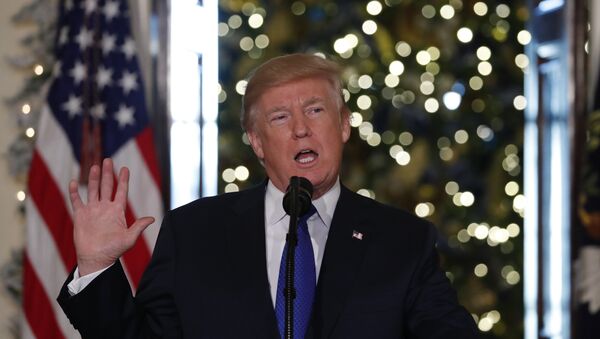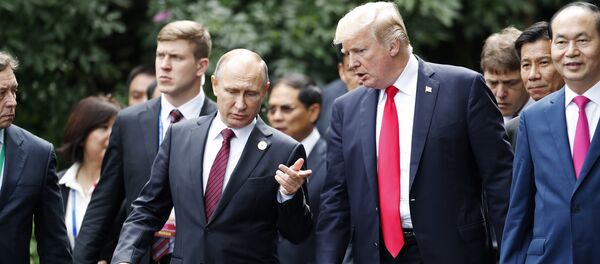The strategy addresses ongoing tensions with Iran and North Korea, as well as what it describes as China and Russia's global aspirations and military capabilities. It also sends a message that the US is rethinking its past policies of engagement with rivals.
"China and Russia are developing advanced weapons and capabilities that could threaten our critical infrastructure and our command and control architecture," the strategy reads.
The document refers to China and Russia as "revisionist powers" that "want to shape a world antithetical to US values and interests."
"China seeks to displace the United States in the Indo-Pacific region, expand the reaches of its state-driven economic model, and reorder the region in its favor," the text of Trump's strategy document says. "Russia seeks to restore its great power status and establish spheres of influence near its borders."
"The combination of Russian ambition and growing military capabilities creates an unstable frontier in Eurasia, where the risk of conflict due to Russian miscalculation is growing," the strategy says.
Previous US presidents have completed the National Security Strategy report by Congressional mandate. Trump was apparently so enthusiastic about the document he wanted to present it himself on live TV.
Trump has requested Beijing's help in solving the North Korean problem and spoke with Russian President Vladimir Putin last week about denuclearizing the Korean Peninsula.
The US leader plans to announce that Pyongyang is developing biochemical weapons that could be delivered by a missile, and that Iran, with which the US and other Western powers struck a historic nuclear deal in 2015, "is developing more capable ballistic missiles and has the potential to resume its work on nuclear weapons that could threaten the United States and our partners."
A source involved in preparing the document told Axios Monday "it is hard to say the document is cohesive, reflecting key inputs from the interagency. The doc doesn't reflect a lot of input from State (and the intel community)… It fits a domestic political narrative."



